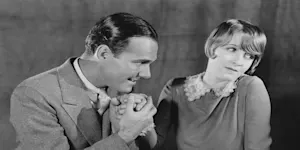What Makes This Word Tick
"Ageism" is more than just a buzzword; it's a conversation starter. It's the embodiment of prejudice or discrimination based on a person's age. This can affect both the young and the not-so-young, but it often refers to stereotypes and biased actions against older adults. It's a term loaded with implications about society's values and how we perceive the aging process.
If Ageism Were a Person…
If ageism were a person, it might be that irksome, stuck-in-the-past character who insists on telling everyone how things "used to be better." This "person" would frequent social gatherings and dismiss the wisdom of their elders while undervaluing the enthusiasm of the youth, believing they alone understand the true value of life.
How This Word Has Changed Over Time
While the term "ageism" was reportedly coined in the late 1960s, its recognition has grown considerably over the decades. Initially, it may have been perceived as just another form of workplace discrimination. However, as societies age globally, the dialogue around it has expanded—now influencing conversations about healthcare, representation in media, and even technology's accessibility for older adults.
Old Sayings and Proverbs That Use Ageism
Ageism doesn't appear in old sayings, but age and aging have their fair share. Consider "Respect your elders," which speaks volumes against ageist attitudes. Even "You're only as old as you feel" champions the idea against limiting oneself—or others—based on age.
Surprising Facts About Ageism
Here's a surprising tidbit: ageism is the most socially accepted form of prejudice in many societies. People often don't even realize they're being ageist. During the pandemic, the term grew more prevalent as older adults faced distinct challenges, highlighting ageist assumptions about vulnerability and capability.
Out and About With This Word
In your community, ageism might rear its head in subtle ways—through jokes about "senior moments" or assumptions about technology ineptitude. But let's flip it! Communities can combat ageism by creating intergenerational events, promoting learning exchanges where knowledge flows both ways.
Pop Culture Moments Where Ageism Was Used
Pop culture has sometimes stumbled in its treatment of aging. TV shows and movies frequently cast older characters in roles defined by their age alone. However, cinema gems like "The Best Exotic Marigold Hotel" challenge these norms, showcasing older characters living vibrant, unexpected lives.
The Word in Literature
In literature, ageism lurks in stories where age determines a character's worth or role. Novels like "The Old Man and the Sea" combat this by celebrating resilience and longevity. Authors who portray aging with depth and dignity offer a narrative push against ageist stereotypes, encouraging readers to see beyond the surface.
Moments in History with Ageism
One might look back at moments like the 1960s civil rights movement, which included age-based advocacy as activists began to address discrimination in employment and beyond. Or consider the more recent gig economy revolution—have we truly been inclusive of different age groups in this workforce evolution?
This Word Around the World
Globally, ageism manifests differently. In some Eastern cultures, aging is revered, with older generations holding high social status. In contrast, Western cultures often emphasize youth, sometimes marginalizing the elderly. Even within the same country, urban and rural perceptions can differ vastly.
Where Does It Come From?
The word "ageism" was coined by American gerontologist Dr. Robert N. Butler in 1969. Borrowing from the concept of racism and sexism, Butler aimed to highlight age-based prejudices and ignite discussions surrounding policies that affect older populations.
How People Misuse This Word
Ageism is often misused by equating any negative comment about old age with discrimination. It's not about a few harmless jokes at bingo night, but rather systemic, harmful biases and practices.
Words It’s Often Confused With
Age: Simply the measure of time one has lived, not to be mistaken for discrimination.
Racism: Both involve prejudice, but racism is based on race, not age.
Sexism: Similar structure and impact, but sexism relates to gender-based discrimination.
Ableism: This focuses on discrimination based on physical or mental abilities.
Additional Synonyms and Antonyms
Synonyms: age discrimination, elderism (though less common)
Antonyms: age inclusivity, respect for age
Want to Try It Out in a Sentence?
"The organization launched a campaign to raise awareness about ageism, emphasizing the valuable contributions of older employees in the workforce."
















